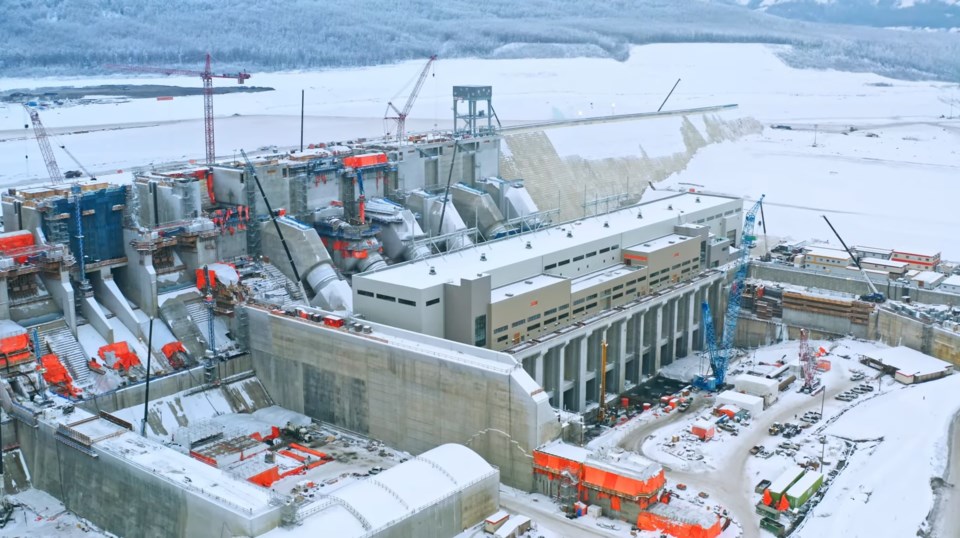Recent developments south of the Canada-U.S. border have kicked off a much-needed public conversation about economic sovereignty that we have not seen for many years.
It has brought to light conversations on how B.C. can reconcile energy development, climate action and reconciliation with Indigenous peoples that have long been deferred or carried out in silos.
The status quo approach yields policy confusion and polarization, with covert tradeoffs that jeopardize prosperity for all. The choices we must make now as a province will determine whether we can truly stand on our own feet. Fortunately, there are valuable lessons that can be learned from a region that has remained largely invisible to urban decision-makers, despite quietly powering our prosperity for decades: Northeast B.C. It's time for the urban-rural disconnect to end.
Here's what most British Columbians don't realize: though home to just one per cent of our population, Northeast B.C. generates an outsized share of our economic output. The region produces virtually all of B.C.'s natural gas, roughly one-third of Canada's total supply, heating our homes and powering our industries. Its rivers generate more than 30 per cent of our hydroelectric power, the backbone of B.C.'s electrification ambitions.
But viewing Northeast B.C. merely as an energy supplier misses the larger story. This region embodies two unavoidable truths about our future: first, that energy development remains indispensable for economic and energy security; and second, that meaningful climate action requires massive infrastructure investments we're only beginning to comprehend.
The Pembina Institute has estimated that fully electrifying all approved or proposed LNG export terminals in B.C. would require the output of 8.4 additional Site C dams. Electric vehicles, heat pumps and additional industrial demands would grow that number further.
If we can't fund and fast-track such mega-projects, our climate targets become aspirational fiction. No amount of future Calls for Power will satisfy our energy demand otherwise, and we certainly can't rely on imports of electricity from jurisdictions who are also rapidly electrifying.
Moreover, oil and gas production underpins B.C.'s economy through exports and domestic energy security. Pretending otherwise only pushes investment and innovation elsewhere.
The fundamental equation is simple: we cannot afford climate change mitigation and adaptation without a productive economy. B.C.'s competitive advantage lies in our natural resources, and Northeast B.C. exemplifies how to leverage them responsibly.
Another major transformation came from the 2021 Yahey court decision. It found that cumulative industrial impacts had violated the rights of Treaty 8 nations. The 2023 Blueberry River First Nations accord, the B.C. government's response to the decision, represented a complete reimagining of how development permits for industries like oil and gas are granted and represented a fundamental change to Crown, Indigenous and industry relationships in the region, with possible implications for other treaties across the country.
Its implementation remains messy. Businesses in the Northeast face considerable regulatory uncertainty. Tens of billions in potential investment hang in the balance. Many Indigenous communities still struggle to build the institutional capacity needed to seize these economic opportunities while balancing cultural and environmental stewardship.
If B.C. is serious about sustainable prosperity, Northeast B.C. offers a blueprint, but only if we're willing to learn from it.
Clear frameworks matter. Transparent, predictable permitting processes enable critically needed investment, while protecting environmental and cultural values. Ambiguity serves no one.
Capacity building is essential. Skills training, economic diversification, and infrastructure investment represent vital investments in people and communities, and enable a pragmatic energy transition. Success must be shared to be sustainable.
Urban perspectives need updating. Policy decisions made by voters in Vancouver and Victoria must reflect on-the-ground realities in Fort St. John, Fort Nelson and Dawson Creek. Distance shouldn't equal ignorance.
Northeast B.C. isn't asking for charity. It’s demanding recognition of its contribution and inclusion in decisions affecting its future.
Ignoring Northeast B.C.'s realities doesn't just risk our economic stability and energy security—it undermines our climate commitments and reconciliation efforts.
British Columbia's future runs through Northeast B.C. It's time our policies, and our attention, reflected that reality.
Editor's note, June 11, 2025: This column was updated to reflect estimates from the Pembina Institute.
Margareta Dovgal is the managing director of Resource Works Society. Rawie Elnur is the research manager at Resource Works. They co-authored the report Shaping the Peace: Balancing Energy, Environment, and Reconciliation in Northeast BC.




